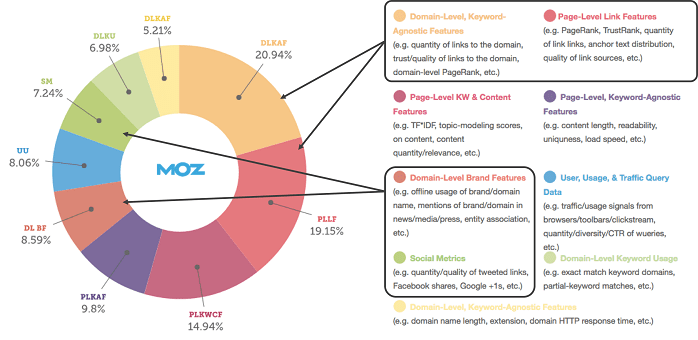The experts in SEO
Get your SEO Analysis and quote.













Explore if AIS Media digital marketing services are a good fit for your business.
Off-site SEO pertains to actions performed outside of your own website to impact your organic keyword rankings. Off-site ranking factors help search engines index your content, so the engine can evaluate user perception of a site’s popularity, relevance, trustworthiness, and authority. While most websites tout their competitive advantages, users often seek third-party validation for their claims. For this reason, if other reputable places on the Internet (pages, sites, people, etc.) link to or promote your website, they effectively “vouch” for the quality of your content. While Google’s algorithm is ever-evolving, data from Search Engine Ranking Factors studies show that off-site SEO-related factors likely carry more than 50% of the ranking factor

Links between sites do more than just get you from one page to another. For the search engines that crawl the web, a link from one site to another acts as a vote of popularity for the page being linked to, as well as the domain that it’s on. Using sophisticated algorithms, search engines can perform a link analysis to discover how pages are related to each other, and the overall popularity of the pages on the web. They take the number of inbound links to a site into consideration when determining page rankings in search results, weighed with all of the on-page SEO factors. SEO link building has evolved to a mostly precise science, and can give your business a major advantage over your competitors if you implement them correctly. Recent Google updates, most notably Google Fred, have also put some restrictions on how link building should be utilized. Deviations from those guidelines can negatively impact your site’s ranking.
To understand how to build a strong backlink profile, we need to understand how a link is valued. We don’t have all the secrets as to how search engines assign value, but we’ve built up a pretty good picture. There are a handful of factors that significantly contribute to a link’s value: Global Popularity: The more popular the site giving the link is, the better that link is valued. A link from Wikipedia carries a lot of weight, since Wikipedia is such a popular website. A link from an obscure blog with few readers carries little weight, by contrast. Local and Topic-Specific Popularity: Generally, links from sites with related content matter more. If a local medical practice’s site gets a link from the American Medical Association, that’s considered a higher-value link than a link from a non-medical site. Anchor Text: This is one of the strongest indicators of a good link. A link pointing to your site using a related keyword as anchor text carries a strong signal. Link Neighborhood: There are a lot of spam links out on the web. A site that links to spam is probably also spam, and a spam site probably has lots more spam sites linking to it. That local network of sites becomes a link neighborhood, and search engines measure that aggregate of links to determine quality.
Building a strong backlink profile is a mix of art and science, and a delicate balancing act. It’s a vital part of success for improving online visibility, but is one of the most difficult aspects; and many of the techniques for cultivating good backlinks can turn against you if taken too far. Each link-building campaign is unique and takes a lot of creativity, but there are a few basic ways to approach it: Natural/Editorial Links: These don’t require any particular action, as they’re just naturally occurring links that might be placed on other sites linking to you. If you create good content, sites will want to link to your pages more. Manual Link Building: This process requires a strategy and manual outreach to likely sites that could host a backlink. It’s a process that takes a lot of experience and knowledge to execute successfully and takes much more time than other strategies. Self-Created/Non-Editorial: There are hundreds of thousands of sites that provide an opportunity to create backlinks through having the right profiles and commenting in the right places. These links are not the highest value, but as a whole can push your rankings up. It’s a double-edged sword. However, pushing this too far can penalize your site if it looks like you’re trying to spam backlinks.
There are a lot of very tangible benefits to having a strong backlink profile. It’s one of the most important signals that search engines use to evaluate your site for ranking potential and relevance. Other than a direct impact on your rankings, strong backlinks can help with: Sending Referral Traffic: It stands to reason that the more links are pointed at your site, the more people will end up on your site by following those links. More importantly, that traffic is more likely to be very relevant. People who click the link are interested in the product or service that’s waiting for them on the other side. Brand Building: Having lots of high-quality links from high-quality sites pointed to your site sets you up as an authority. Getting a link from an official organization, manufacturer, or even something like Wikipedia lends credibility to your site and promotes your brand as one with quality. Building Relationships: In the outreach process to other sites, you can develop relationships with key influencers in your industry. That lends credibility and trust to your business, and can come with any number of perks.
SEO link building is a complicated process, and can harm your site’s credibility and search rankings if done incorrectly. AIS Media has a team of professionals who specialize in SEO link building services. They can help you get an advantage with a strong backlink profile. Contact us to learn more!